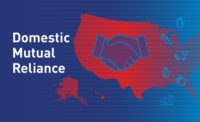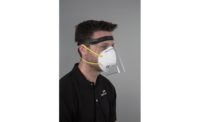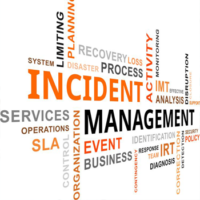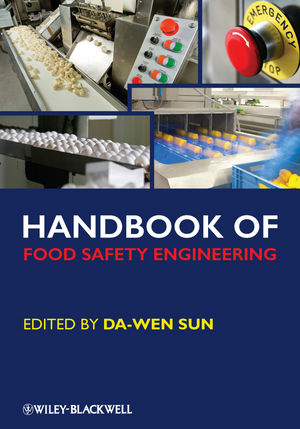Pennsylvania Department of Agriculture’s Rapid Response Team: A Collaborative Response to Food Safety Emergencies

After a number high-profile foodborne illness outbreaks in the United States, President Barack Obama’s Food Safety Working Group recommended that a Rapid Response Team (RRT) concept be adopted and funded through the U.S. Food and Drug Administration (FDA) to improve emergency planning and response to such incidents. Foodborne outbreaks and emergencies can result in illnesses, deaths, and, often, economic consequences. Agencies at all levels of government have a significant role in recognizing outbreaks or other events, and responding rapidly to protect the public.
In 2008, the RRT program was created by the FDA’s Office of Partnerships to address the need for an improved and integrated rapid response to complex food and feed emergencies across the country. Grants were awarded to six pilot states in 2008, and the next year, the pilot program was expanded to three additional states. Nine more RRTs, including that of Pennsylvania, were formed and funded in August 2012. The program has now grown to include 22 states, some of which operate without federal funding.
In Pennsylvania, an RRT Advisory Group, a collaboration of more than 40 organizations, was created to better understand their respective roles and how they interact in a large food or feed emergency response. Pennsylvania’s RRT Advisory Group, led by the Pennsylvania Department of Agriculture (PDA), includes representatives of academia, industry, local health departments, and state and federal agencies.
Federal partners include FDA’s Philadelphia District Office, the U.S. Department of Agriculture (USDA) Food Safety and Inspection Service, the USDA Veterinary Services, the U.S. Centers for Disease Control and Prevention, the Federal Bureau of Investigation, and the U.S. Department of Homeland Security. State agency partners include the Pennsylvania Department of Health, the Department of Environmental Protection, the Pennsylvania State Police, the Pennsylvania Emergency Management Agency, and the Pennsylvania Army National Guard. The American Veterinary Medical Association through its Veterinary Medical Assistance Team also participated in the project, along with a private industry and regional task force emergency planning advocate.
Pennsylvania initially operated using the Best Practices Manual developed by the original pilot RRTs. The commonwealth’s Food/Feed Emergency Response Plan, the RRT Concept of Operations along with Standard Operating Procedures (SOPs), and other related job aids were then developed to include Pennsylvania-specific information and procedures. Pennsylvania has continued to update and revise these documents to complement both FDA’s Manufactured Food Regulatory Program Standards and Animal Feed Regulatory Program Standards projects.
Pennsylvania’s RRT group continues to upgrade SOPs to be followed by local, state, and federal responders during agricultural incidents. PDA RRT operates using the Incident Command System principles and a Unified Command structure in any human or animal food emergency. During both actual incidents and training exercises, it became evident that these guides and procedures proved valuable and would improve the ability to respond to a food/feed emergency in or affecting Pennsylvania.
The Pennsylvania RRT engages partners across jurisdictions to build on core capabilities, exchange best practices, and explore innovative approaches to incident response within the state and on a national level. PDA remains active and has been widely inclusive in connecting with local, state, federal, and private sector partners, evolving current valued relationships and creating new partnerships.
Through quarterly meetings, multi-disciplinary cross-training, incident simulation exercises, and procedure development with partners in environmental health, food investigations, sampling, epidemiology, laboratory processes, communications, law enforcement, and emergency management, the proficiencies of food and feed responders have been significantly enhanced. The program also employs national standards, educational courses, and “Train the Trainer” opportunities to improve preparedness for various food and feed events. During our responses and exercises, we have engaged food safety and feed inspectors along with other agencies working together to resolve cases (see “PDA RRT Response Examples,” right).
By leveraging resources of multiple disciplines, expanding the understanding of a complex food system, and developing procedures and standards to train and exercise, the RRT has put Pennsylvania in a heightened state of readiness to respond to food and feed system threats, hazards, and outbreaks. The Pennsylvania team has hosted many of our industry representatives and partners for numerous tabletop exercises to sharpen collective capacity to respond. These included sessions for the Democratic National Convention and, most recently, an intentional contamination of feed that made its way into the food system.
Emergency managers should determine whether their state has a food/feed RRT through their state health or agriculture departments, and whether they are welcome to participate in the group.
Pennsylvania is committed to prevention and response to emergencies that jeopardize the safety and resiliency of the food, feed, and agriculture industries. We will continue to foster and sustain relationships and collaborative emergency response to protect Pennsylvania residents and consumers. Continued support for the RRT program will help safeguard an industry that is one of the primary economic drivers in the commonwealth.
Arthur D. Kaplan, CEM, PCP, is the PDA RRT coordinator. He consults in the areas of emergency preparedness, emergency response, hazardous materials, and public safety. He is working for PDA under a prime contract held by Cocciardi and Associates.
Looking for a reprint of this article?
From high-res PDFs to custom plaques, order your copy today!








